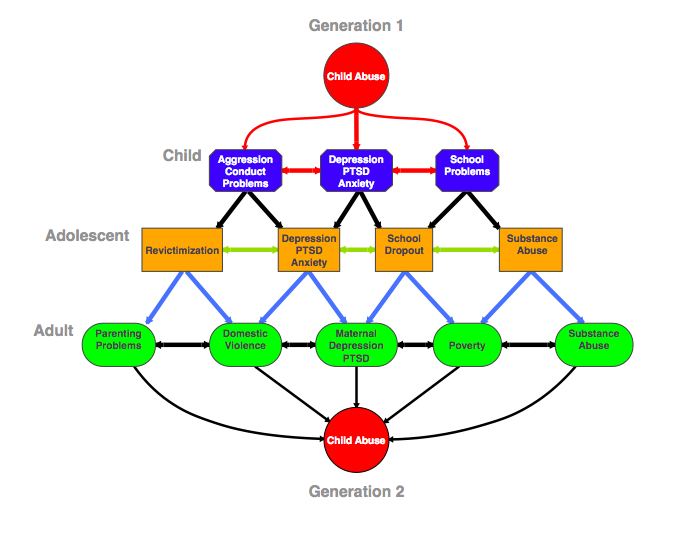- Influence the influencers to new mothers: pediatricians, gynecologists, hospital administrators, welfare agencies and clinics that interact with new mothers. Create training videos for doctors and social workers. Speak at conferences. Get celebrity endorsements. Create buzz.
- Create a resource for parents, doctors and researchers with respect to peaceful parenting techniques. Resources will include therapies and links to therapists for helping adults deal with their own traumas, email newsletters/eblast for age appropriate content to parents.
- Conduct studies to prove the efficacy and cost benefits of early parent education.
Create content, videos, articles on social media to change the culture of violence towards children and bring attention to the prevalence of abuse. - Create a pool of mentor mothers and mentor grandmothers to be matched up with at risk newmothers that need a helping hand on how to have a better relationship with their babies.
- Make sure parents know the importance of brain development in the first three years! That playful interaction, love, reading and singing help raise the IQ of their children, create a more resilient child and set them up for future success. A more resilient child can cope better to life’s inevitable hardships.
What We Value
The Foundation for Peaceful Parenting values the provision of tools and educational resources to reintegrate families and create healthier, lasting connections. Harsh, corporal punishments will be replaced with empathetic, social emotional, loving discipline. We at the Foundation for Peaceful Parenting believe that positive reinforcement and a growth-oriented mindset are crucial for the healthy development of children.
Our Work
We offer peaceful parenting classes, volunteer mothers, eBlast tips and resources for parents, outreach programs to hospitals and clinics, therapy options for ACEs, and social/emotional learning courses.
The Foundation for Peaceful Parenting has enlisted the support of Mom’s OC in implementing a new SEL protocol. Toddlers to Teens (T2T), the new initiative, will increase emotional literacy for both the parents and their children and also give parents the skills to discipline in a peaceful, loving manner. We are currently looking for a University professor in support of attachment studies with the aim of preventing ACEs.
Our Vision
Our vision is a world in which all children live free of avoidable trauma. We believe a world without inflicted trauma and abuse will ultimately be a world without prisons and war. It will be a less authoritarian world, one predicated on peace and voluntarism.
Interested?
Take a look at some interesting findings:




